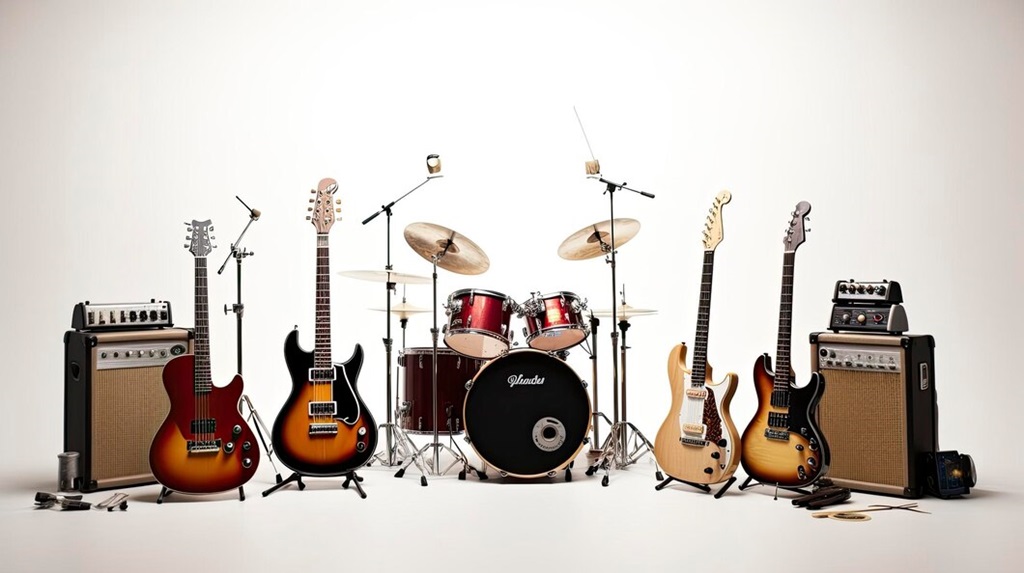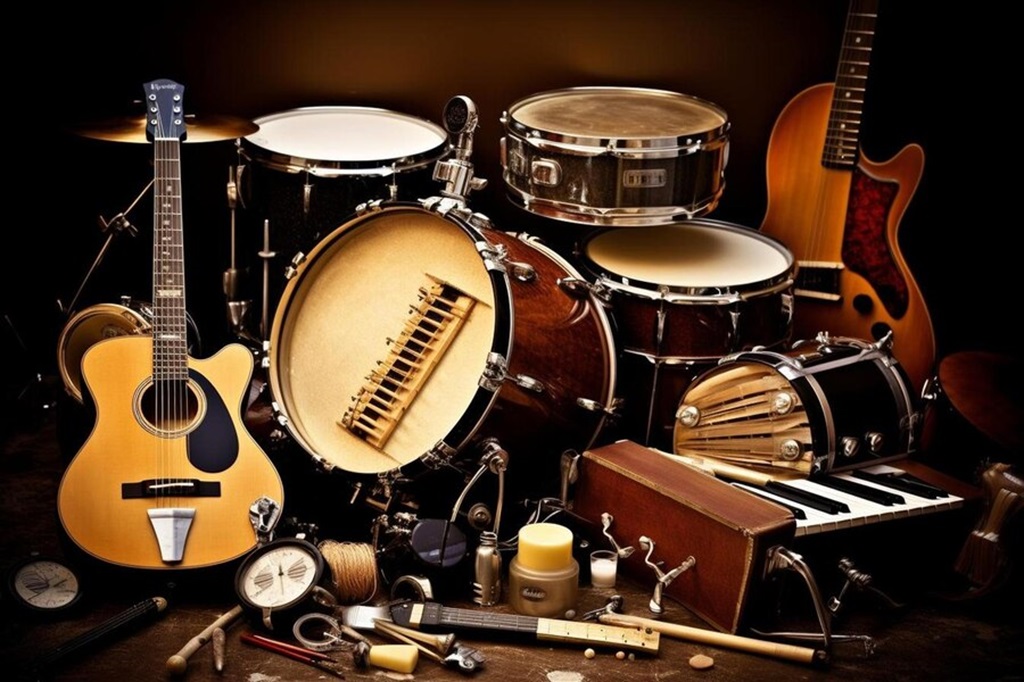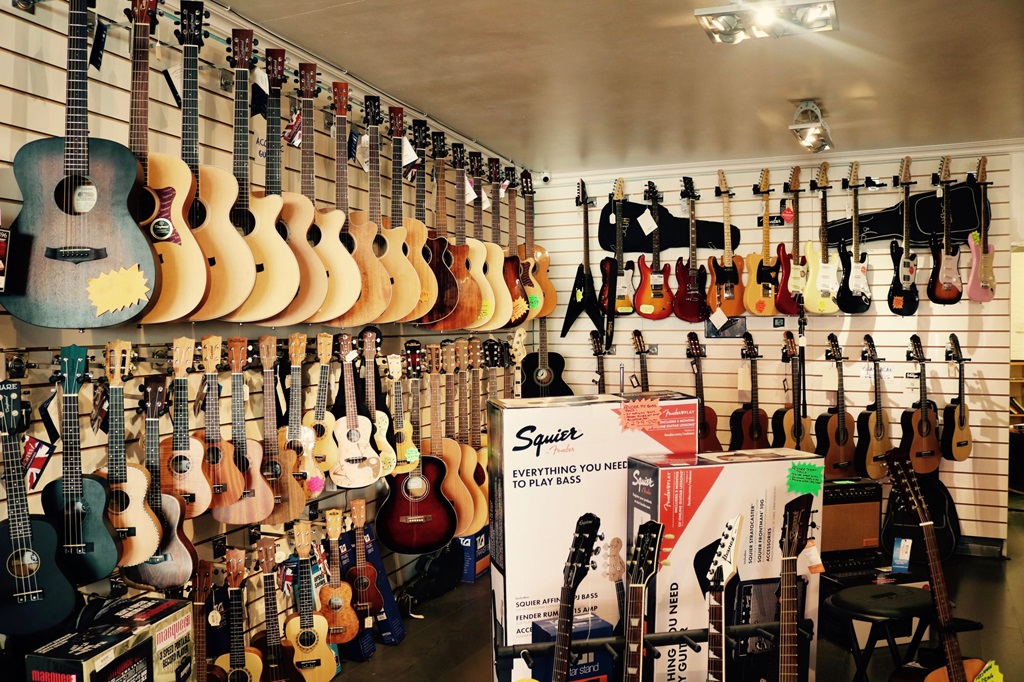Engaging in a romantic relationship with a married women dating can be a thrilling experience…

What Does Rent Musical Instruments Mean?
Are you or your child interested in pursuing a passion for music by learning to play a musical instrument? It’s understandable that you may feel hesitant to make a significant investment upfront, especially if you’re still deciding which instrument to commit to. Rent musical instruments can be an excellent way to explore your musical interests without a large financial commitment. This guide is designed to provide beginner musicians with a comprehensive understanding of the process of renting musical instruments, including what to expect and what factors to consider before making a final decision.
What Does It Mean to Rent Musical Instruments?
Renting an instrument simply means paying a monthly fee to borrow an instrument for a certain period of time. The company or music store you rent from retains ownership of the instrument. Rental periods tend to range from 1-12 months.
Renting gives you access to a quality instrument without having to shell out hundreds or thousands of dollars right away. It’s ideal for beginners who want to learn the basics on an instrument before committing to buying one. Think of it like taking an instrument out for a test drive.
Why Should You Consider Renting?
Here are the biggest perks of renting a musical instrument as a beginner:
Lower Cost
Purchasing an instrument, especially higher-end brands, can get very expensive. Prices often start at several hundred dollars and go up into the thousands. Renting can cost as little as $25-50 per month depending on the instrument type and rental company. This makes learning an instrument more accessible.
Try Before You Buy
Renting gives you time to decide if you enjoy learning and playing the instrument enough to eventually purchase one. You don’t want to be stuck with an expensive instrument you rarely or never play.
Access to High-Quality Gear
Rental instruments are typically name-brand, high-quality gear. As a beginner, learning on a poorly made instrument can be frustrating and make you sound bad even when playing correctly. Rental instruments allow you to sound and perform at your best while developing your skills.
What Instruments Can You Rent?

Many music stores and specialized rental companies offer band and orchestra instrument rentals. Common rentable instruments include:
- Brass: Trumpet, Trombone, French Horn
- Woodwinds: Flute, Clarinet, Saxophone
- Strings: Violin, Viola, Cello
- Percussion: Snare Drum, Xylophone
- Guitar (Acoustic, Electric, Bass)
- Piano & Keyboard
You can also sometimes find more niche instruments like harps, bagpipes, and accordions available to rent, but these will be less common.
How Does the Rental Process Work?
Renting a musical instrument is straightforward and convenient. Here are the typical steps:
- Research Options – Search online for music stores and rental companies in your area. Read reviews and compare pricing and rental terms.
- Select an Instrument – Decide which instrument you want to learn to play, then select from available rental stock. Clarify details like rental period, pricing, accessories included, etc.
- Complete Paperwork – Complete a simple rental agreement covering things like monthly payments, rental period/deadlines, maintenance responsibilities, insurance/warranties, and ownership.
- Take Home Your Rental – Pay your first monthly rental fee then take home your shiny, high-quality new instrument! Time to start practicing.
- Make Monthly Payments – Continue making agreed monthly payments to extend your rental period, return anytime when ready.
It’s that easy. Within an hour you can walk out with an instrument to play without a large one-time payment.
What’s Typically Included in the Rental?
Instrument rentals typically include more than just the instrument itself. Most rentals also come with the following:
- Durable Case: Protects instrument when transporting and storing at home
- Cleaning Supplies: Needed rods, cloths, lubricants, etc. to maintain instrument
- Reeds/Mouthpieces: Replaceable pieces for woodwind/brass instruments
- Tutorial Book: Basic technique and music learning methods to follow
- Optional Damage Insurance: For repair/replacement if accident occurs
Some rentals may also include music stand, tuner, metronome, extra strings, or other useful accessories. Ask what’s included before renting to understand what you might need to purchase separately.
How Much Does Renting Cost?
Rental fees vary across instrument types but tend to range from $25-50 per month. Slightly more niche instruments may cost more. Typically, string instruments and percussion cost less to rent than woodwinds and brass. The specific company policies also impact price differences.
In addition to the recurring monthly fee, you may need to pay:
- Tax
- Deposit (ex. 1-2 months rent) – Refundable
- Processing/Enrollment Fee – One time
- Insurance Fee – Optional, covers repairs
Ask for complete pricing details upfront so you know the total cost. Also find out what happens if you return the instrument early – can you get any deposit or fees refunded?
What are the Typical Rental Periods?
Most companies offer flexible rental periods ranging from 1-12 months. Common options include:
- Monthly: Ideal for the most flexibility
- 3 Months: Try instrument out for a season
- 6 Months: Learn over half a year
- 12 Months: Use instrument for a full year
Longer term rentals often come with a discounted monthly fee. You aren’t necessarily committing to the whole period upfront either. Rentals can usually be returned early if desired.
Can You Purchase the Rental Instrument?

Some rental programs give you the option to purchase either the specific instrument rented or an upgraded model. Each company has different purchase policies – some key options include:
Equity Rentals
- Accumulate partial ownership over time
- Purchase price discounted based on rental payments
- Typically allows 12-18 months before purchase
Rent-to-Own
- All rental $ goes towards purchase
- Own instrument after paying fixed total price
Buyout Option
- Right to purchase at market price
- Limited time offer before returned
The purchase price should be clearly stated in the original rental agreement. If interested in owning eventually, clarify details upfront.
What are the Maintenance Requirements?
Renters are usually responsible for basic care and maintenance to avoid damage over the rental period. Typical requirements include keeping the instrument in good playing condition by:
- Handling instrument with care
- Storing properly in case when not playing
- Keeping clean by wiping off fingerprints, dust, etc.
- Not placing stickers or other decorations
More complex cleaning like polishing and oiling are often optional or come with guidance. Proper handling and care ensures you return the instrument in similar condition and avoid fees.
Can You Travel With a Rental Instrument?
rental instruments can generally go anywhere you need them to help continue practice and playing while traveling. However, restrictions vary on international transport and airline travel. Some best practice tips include:
- Clarify policies with rental company ahead of time
- Opt for a more protective travel case instead of standard case
- Carry instrument and case on plane instead of checking
- Consider specialized shipping for international transport
- Purchase additional insurance for period traveling
Avoid casual traveling like leaving instruments in hot cars unattended. Use common sense while traveling to prevent damage or theft.
Should You Insure Your Rental?
Most rental companies offer optional damage protection and replacement coverage for an additional fee, similar to car rental insurance. It provides peace of mind for just a few extra dollars per month and is highly recommended.
Basic protection won’t cover negligence or malicious harm, but does cover:
- Accidental drops or impacts
- Client’s children damaging instrument
- Some types of exposure damage
- Theft (with filed police report)
- Natural disaster damage
Even with proper care, accidents happen. Protection saves you from expensive replacement or repair costs during rental. Well worth a small monthly investment for valuable protection.
What Happens if You Damage an Uninsured Rental?
If you opt out of damage coverage and break your rental instrument, you will likely need to pay out of pocket for needed repairs or even full replacement cost. These expenses can reach hundreds to thousands of dollars depending on severity and original instrument value.
To avoid paying expensive uncovered expenses:
- Seriously consider added insurance protection
- Store and handle instrument with extreme care
Uninsured damages could result in fees equal to the instrument’s replacement cost. A delicate instrument treated carelessly is an expensive accident waiting to happen. The small added insurance fee provides essential financial protection.
Can You Rent if Relocating Soon?

Yes, renting can still make sense even if moving in the coming months. Many national chains have locations across the country allowing you to return and re-rent instruments if relocating. Here are some additional tips for a hassle-free rental experience if relocating soon:
Choose a National Company
Research companies with a widespread presence and confirm they have a location in the area you may move to. Large national chains like Music & Arts or Guitar Center allow consistent renting before and after a move.
Extend Remotely
Many rental portals and accounts are available online. After relocating, you can conveniently extend or modify the existing rental period digitally as needed.
Return In-Person
Return the instrument at any franchise location once settled in the new area. You can then rent the same or similar instrument again for consistency. Some prorated refunds may apply.
Switch Insured Items
The insurance and coverage for a damaged rental likely can’t transfer across state lines. But when starting a new rental, adding protection picks up where it left off.
Ask about Policies
Every rental company handles relocations differently. Before renting, clarify upfront their relocation and returns policy as well as fees. Understanding policies ahead of time prevents hassle.
Rent musical instruments short-term before moving makes sense. The convenience of national availability and protection plans keep music education consistent across moves.
How Do You Find Instrument Rental Companies?
The easiest way to find musical instrument rental options in your area is by searching online. Resources to check include:
Music Store Websites – Most music equipment retailers like Guitar Center offer rentals. Check their rental policies online.
Rental Aggregators – Services like RentMyInstrument list various reputable instrument rental companies searchable by location.
Online Marketplaces – Sites like Craigslist sometimes list individuals renting instruments locally as an alternative.
Yellow Pages – Traditional phone directories under categories like “Musical Instrument Rental” or “Music Stores.”
Ask Around – Friends, family members, teachers, and fellow musicians may have rental recommendations.
After finding a few promising options, compare rental terms, pricing, and instrument condition across stores. Read reviews by past customers to gauge rental service quality before committing.
When Should You Rent an Instrument?
Wondering if now is the right time to dive into instrument renting? Here are 3 signs
- You or a child want to try lessons and learn a new instrument. Rentals allow starting lessons without huge upfront investment in an owned instrument.
- Your income can reasonably handle $25-50 monthly fees – on par or cheaper than most streaming services or cell phone bills.
- You are unsure about long-term musical instrument dedication. Short term rentals let you try before committing to purchasing and owning an expensive piece.
Rentals help ease beginners into musical instruction thanks to affordability and flexibility. You can always cancel or return rentals if losing interest.
Ready to Start Renting an Instrument?

I hope this beginner’s guide served as a helpful introduction to everything you need to know about renting musical instruments. Now that you understand the incentives, costs, and processes – you’re fully equipped to start your rental search.
Remember why renting initially makes sense:
Far cheaper than buying upfront
Access high-quality instruments
Flexibility to return anytime
Allows effortlessly trying instruments
Fits conveniently into monthly budgets
Spend time researching reputable rental companies in your region with favorable rental terms. Carefully read all policies and inspection requirements before signing agreements. With that squared away – time to fetch your shiny new rental instrument and start playing!
The earlier you start renting, the sooner you can pick up new musical skills. Wishing you an exciting and educational journey ahead. Let the music play on!
Conclusion
Renting provides an affordable, low-risk way for any aspiring musician to access quality instruments while developing skills and interest. Before committing hundreds or thousands of dollars to purchasing an instrument outright, give renting a try. Take advantage of being able to conveniently return rentals if your needs or interests shift. Use this rent musical instruments guide’s advice to secure an ideal rental experience as a beginner student. Wishing you an enjoyable and inspiring musical journey ahead.
FAQs
Do rentals come with music lesson discounts?
Some rental companies and local music stores bundle deals on instrument rentals with discounted group lessons, private instruction, or music classes. Call stores in your area to check what lesson bundles or promotions may be available to take advantage of savings. Group classes in particular help reinforce technique and accelerate learning.
What if I want to switch instruments mid-rental?
Most rental companies understand beginners may change interests over a few months. Typically you can swap out one rental instrument for another style at little to no cost. Just return the undesired rental then apply any credit towards a more suitable instrument. No fees wasted.
Can I rent multiple instruments at once?
Yes, retailers normally allow renting different instrument types simultaneously like a guitar AND clarinet for example. Splitting rental fees across a couple instruments makes learning multiple easier to fit in the same budget. Just be careful about rental insurance fees stacking up.
What are common rental contract lengths?
Typical instrument rental contracts range from 1 month to a full year with 3, 6, and 12 month periods most prevalent. Even lengthy 12 month agreements can often be terminated early if desired. Go for maximum flexibility your first time renting, then consider longer rentals once committed.
What happens if I miss or skip a payment?
Most companies offer some grace period up to a week or so for late payments. After that, late fees from $5-20 may be applied each billing cycle until caught up on owed rental costs. Severely delinquent accounts can result in the instrument being reclaimed. Keep payments current or communicate issues quickly.



